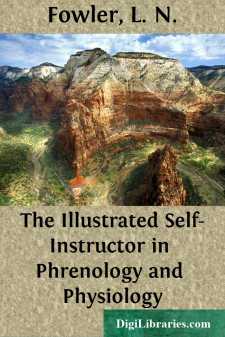Categories
- Antiques & Collectibles 13
- Architecture 36
- Art 48
- Bibles 22
- Biography & Autobiography 813
- Body, Mind & Spirit 142
- Business & Economics 28
- Children's Books 15
- Children's Fiction 12
- Computers 4
- Cooking 94
- Crafts & Hobbies 4
- Drama 346
- Education 46
- Family & Relationships 57
- Fiction 11828
- Games 19
- Gardening 17
- Health & Fitness 34
- History 1377
- House & Home 1
- Humor 147
- Juvenile Fiction 1873
- Juvenile Nonfiction 202
- Language Arts & Disciplines 88
- Law 16
- Literary Collections 686
- Literary Criticism 179
- Mathematics 13
- Medical 41
- Music 40
- Nature 179
- Non-Classifiable 1768
- Performing Arts 7
- Periodicals 1453
- Philosophy 64
- Photography 2
- Poetry 896
- Political Science 203
- Psychology 42
- Reference 154
- Religion 513
- Science 126
- Self-Help 84
- Social Science 81
- Sports & Recreation 34
- Study Aids 3
- Technology & Engineering 59
- Transportation 23
- Travel 463
- True Crime 29
The Illustrated Self-Instructor in Phrenology and Physiology
by: L. N. Fowler
Description:
Excerpt
SECTION I.
PHYSIOLOGICAL CONDITIONS AS AFFECTING AND INDICATING CHARACTER.
I.—VALUE OF SELF-KNOWLEDGE.
“Knowledge is power”—to accomplish, to enjoy—and these are the only ends for which man was created. All knowledge confers this power. Thus, how incalculably, and in how many ways, have recent discoveries in chemistry enhanced human happiness, of which the lucifer match furnishes a home example. Increasing knowledge in agriculture is doubling the means of human sustenance. How immeasurably have modern mechanical improvements multiplied, and cheapened all the comforts of life. How greatly have steamboats and railroads added to the former stock of human success and pleasures. Similar remarks apply to all other kinds of knowledge, and as it increases from age to age will it proportionally multiply all forms of human happiness. In fact, its inherent nature and legitimate effect is to promote every species of enjoyment and success. Other things being equal, those who know most, by a law of things, can both accomplish and enjoy most; while ignorance instead of being bliss, is the greatest cause of human weakness, wickedness, and woe. Hence, to ENLIGHTEN man, is the way to reform and perfect him.
But SELF-knowledge is, of all its other kinds, both the most useful and promotive of personal and universal happiness and success. “Know thyself” was written, in golden capitals, upon the splendid temple of Delphos, as the most important maxim the wise men of Greece could transmit to unborn generations; and the Scriptures wisely command us to “search our own hearts.” Since all happiness flows from obeying, and all pain from violating, the LAWS OF OUR BEING, to know our own selves is to know these laws, and becomes the first step in the road of their obedience, which is life. Self-knowledge, by teaching the laws and conditions of life and health, becomes the most efficacious means of prolonging the former and increasing the latter—both of which are paramount conditions of enjoying and accomplishing. It also shows us our natural talents, capabilities, virtues, vices, strong and weak points, liabilities to err, etc., and thereby points out, unmistakably, those occupations and spheres in which we can and cannot succeed and shine; and develops the laws and conditions of human and personal virtue and moral perfection, as well as of vice, and how to avoid it. It is, therefore, the quintessence of all knowledge; places its possessor upon the very acme of enjoyment and perfection; and bestows the highest powers and richest treasures mortals can possess. In short, to know ourselves perfectly, is to know every law of our being, every condition of happiness, and every cause of suffering; and to practice such knowledge, is to render ourselves as perfectly happy, throughout every department of our being, as we can possibly be and live. And since nothing in nature stands alone, but each is reciprocally related to all, and all, collectively, form one magnificent whole—since all stars and worlds mutually act and react upon each other, to cause day and night, summer and winter, sun and rain, blossom and fruit; since every genus, species, and individual throughout nature is second or sixteenth cousin to every other; and since man is the epitome of universal nature, the embodiment of all her functions, the focus of all her light, and representative of all her perfections—of course to understand him thoroughly is to know all things....


